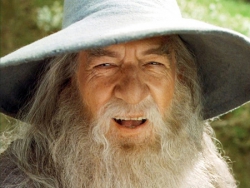Decision Time

"All we have to decide is what to do with the time that is given to us."
J.R.R. Tolkien, Fellowship of the Ring.
Time is the dimension in which we live. When we are looking forward to a positive event in our lives we want it to pass quickly. When we dread what is coming we want to stop time in its tracks. As we age, it seems like the passing of time spins ever faster, and then one day we come to realize that there are likely more days that are part of our past than days that will be part of our future.
Sometimes I'm so busy that deadlines loom like harsh taskmasters, demanding that I make my quota of bricks without straw like the Hebrew slaves in Egypt. I have moments when I wish that weeks had eight days or that years had thirteen months. And don't get me started on Daylight Savings Time when I lose an entire hour out of my day. It makes me want to march on Washington and scream, "Give me my hour back!"
But then I realize that if my week had eight days I would just be that much busier. If I had eight-day weeks, or thirteen-month years, I would just overfill them as I do my current time. The blessing and the curse of time is that every single one of us gets the same amount every day. We don't all get the same number of years in a lifetime, but for every day that we wake up twenty-four hours lie before us, laid out in repetitions of seven-day weeks. And we are the stewards of that time; it has been given to us as a blank slate, and we are charged by the God who gave it with deciding how to use it.
Outside forces can and do influence the decisions we make about the use of our time. Our own ability to keep the Sabbath commandment--to make sure there is one day a week when we do NO work--is too frequently hampered by systemic issues in the 24/7 culture in which we live. Sabbath is a justice issue, but that is a topic for another post.
What is presenting itself to me this particular New Year's Eve, however, is the truth of Gandalf's words above. Frodo (the hobbit at the center of the Lord of the Rings trilogy by J.R.R. Tolkien) has just complained to the wizened wizard Gandalf that he wishes he didn't have to witness the horrors of that particular point in the history of Middle Earth. But Gandalf tells him that while Frodo's desire is understandable, it is not up to him. Time and history and events move around us without our permission. The only decision that is truly ours is how we respond, and the only means we have to respond is in the use of our time.
Our world, like Frodo's, often seems to be spinning out of control. Evil seems to gain more ground than it should, we are unsure who to trust, and it can be tempting to come into the New Year wanting to put our heads under our pillows and dream of simpler days. But the clock ticks on, giving us another twenty-four hours. Human history moves along, giving us an opportunity to engage it or to flee. What will we do with the time that is given to us?
It was the same in Jesus' day. Murder and mayhem, brutality and torture, abuses of power, oppressed people on the margins--it was all part of the day-to-day life of first-century Judea and Galilee. People being executed on tortuous crosses literally lined the streets, well before Jesus was pinned to his own. Roman soldiers arbitrarily threw their power around, sometimes for the good of the people, but often inflicting abuse and even death for no reason apart from the fact that they could. It was so bad that people of faith began to believe it was the end of times.
But it wasn't. And it isn't. Days still turn to nights and nights turn into days and we have the same question facing us that faced Jesus, his disciples, Frodo, and every real or fictional character that has been placed into the dimension of time. How will we use the time we have been given? As stewards of the year before us, how will we use it? Will we hide or engage? Will we hurt or will we heal?
While our faith may (and should) inform that decision, the fact that we have such a decision lies before the religious and non-religious alike. What will we do with the time that has been given to us?
What will you do with the time that has been given to you?

